Quotes & Sayings About American Indian Culture
Enjoy reading and share 11 famous quotes about American Indian Culture with everyone.
Top American Indian Culture Quotes
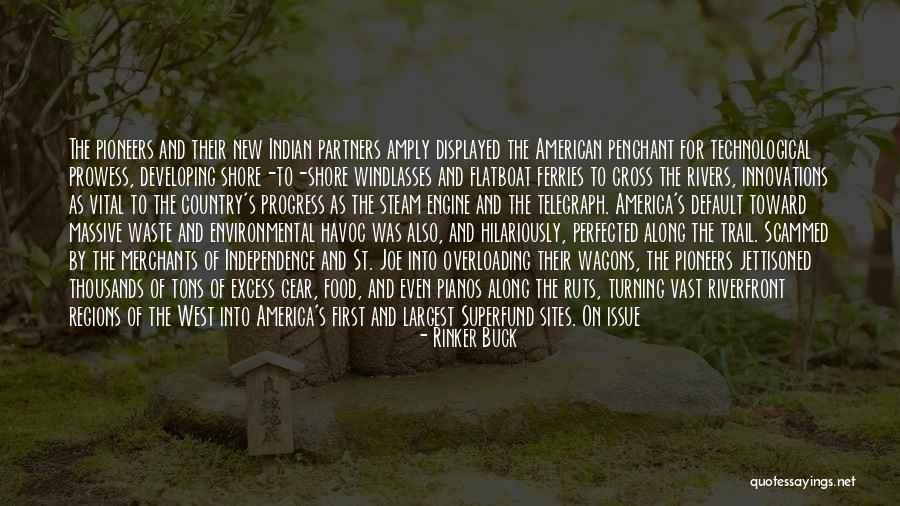
The pioneers and their new Indian partners amply displayed the American penchant for technological prowess, developing shore-to-shore windlasses and flatboat ferries to cross the rivers, innovations as vital to the country's progress as the steam engine and the telegraph. America's default toward massive waste and environmental havoc was also, and hilariously, perfected along the trail. Scammed by the merchants of Independence and St. Joe into overloading their wagons, the pioneers jettisoned thousands of tons of excess gear, food, and even pianos along the ruts, turning vast riverfront regions of the West into America's first and largest Superfund sites. On issue after issue - disease, religious strife, the fierce competition for water - the trail served as an incubator for conflicts that would continue to reverberate through American culture until our own day. — Rinker Buck
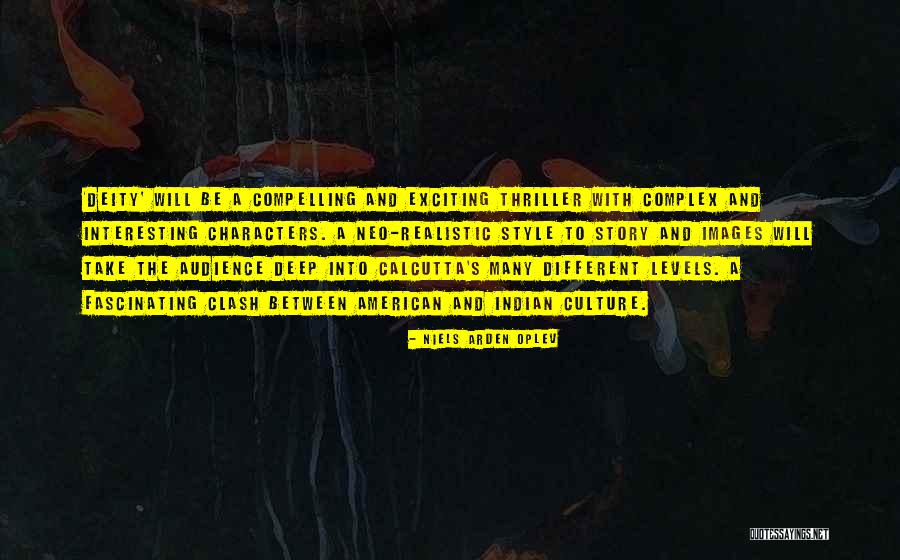
'Deity' will be a compelling and exciting thriller with complex and interesting characters. A neo-realistic style to story and images will take the audience deep into Calcutta's many different levels. A fascinating clash between American and Indian culture. — Niels Arden Oplev
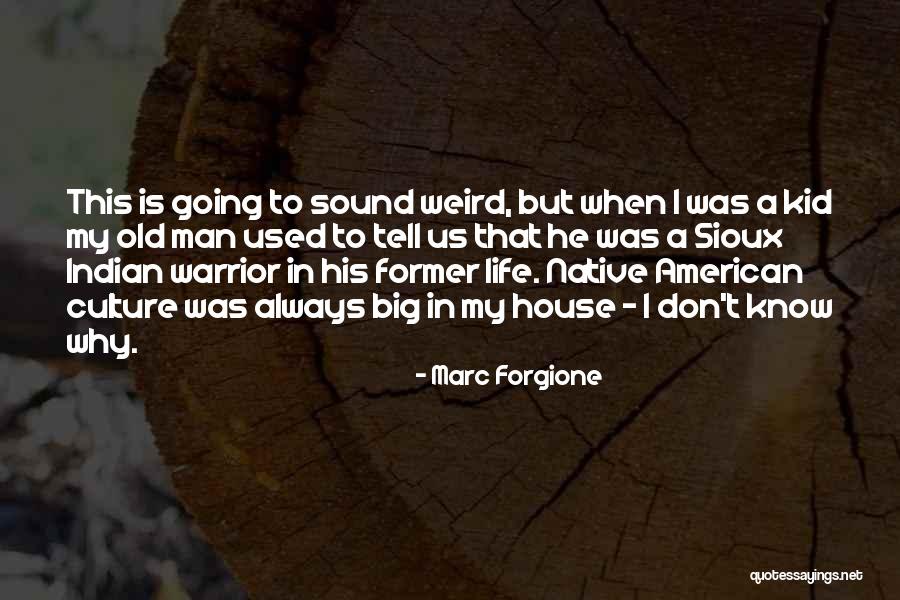
This is going to sound weird, but when I was a kid my old man used to tell us that he was a Sioux Indian warrior in his former life. Native American culture was always big in my house - I don't know why. — Marc Forgione
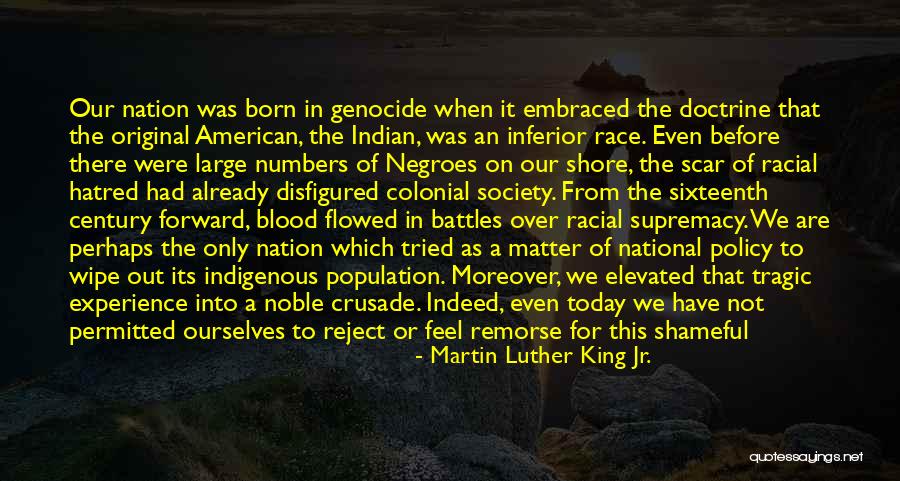
Our nation was born in genocide when it embraced the doctrine that the original American, the Indian, was an inferior race. Even before there were large numbers of Negroes on our shore, the scar of racial hatred had already disfigured colonial society. From the sixteenth century forward, blood flowed in battles over racial supremacy. We are perhaps the only nation which tried as a matter of national policy to wipe out its indigenous population. Moreover, we elevated that tragic experience into a noble crusade. Indeed, even today we have not permitted ourselves to reject or feel remorse for this shameful episode. Our literature, our films, our drama, our folklore all exalt it. Our children are still taught to respect the violence which reduced a red-skinned people of an earlier culture into a few fragmented groups herded into impoverished reservations. — Martin Luther King Jr.
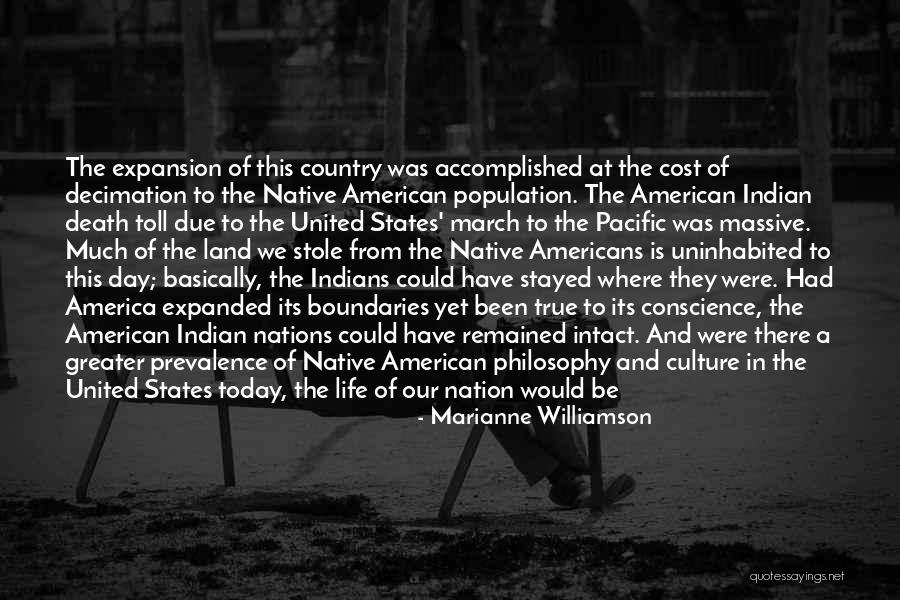
The expansion of this country was accomplished at the cost of decimation to the Native American population. The American Indian death toll due to the United States' march to the Pacific was massive. Much of the land we stole from the Native Americans is uninhabited to this day; basically, the Indians could have stayed where they were. Had America expanded its boundaries yet been true to its conscience, the American Indian nations could have remained intact. And were there a greater prevalence of Native American philosophy and culture in the United States today, the life of our nation would be immeasurably enriched. — Marianne Williamson
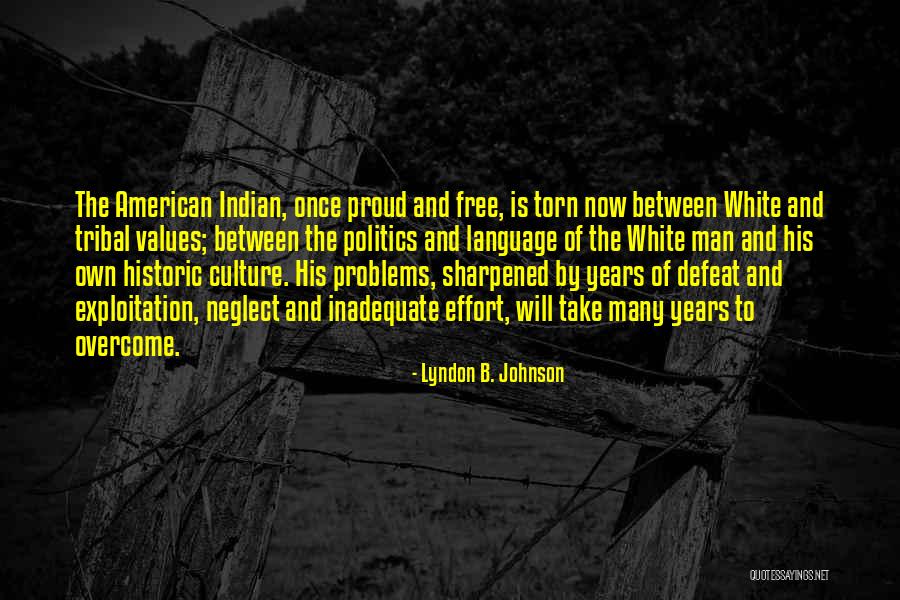
The American Indian, once proud and free, is torn now between White and tribal values; between the politics and language of the White man and his own historic culture. His problems, sharpened by years of defeat and exploitation, neglect and inadequate effort, will take many years to overcome. — Lyndon B. Johnson
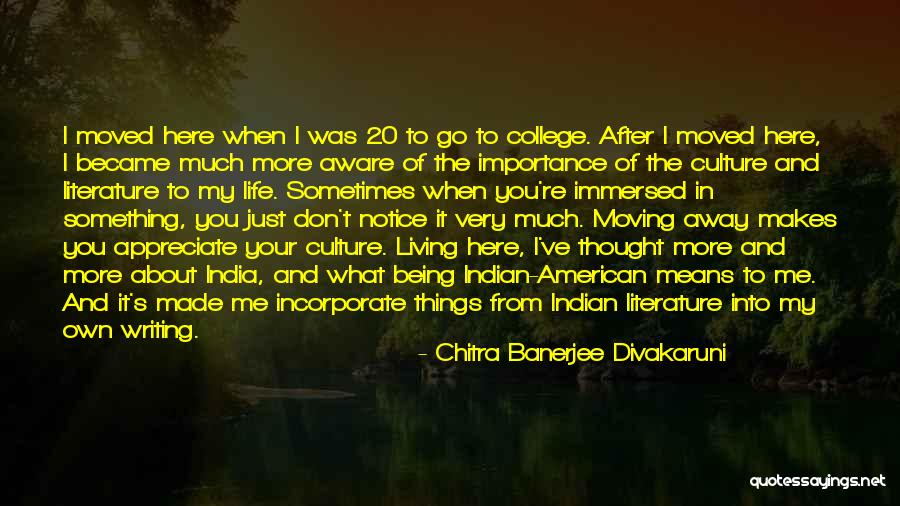
I moved here when I was 20 to go to college. After I moved here, I became much more aware of the importance of the culture and literature to my life. Sometimes when you're immersed in something, you just don't notice it very much. Moving away makes you appreciate your culture. Living here, I've thought more and more about India, and what being Indian-American means to me. And it's made me incorporate things from Indian literature into my own writing. — Chitra Banerjee Divakaruni
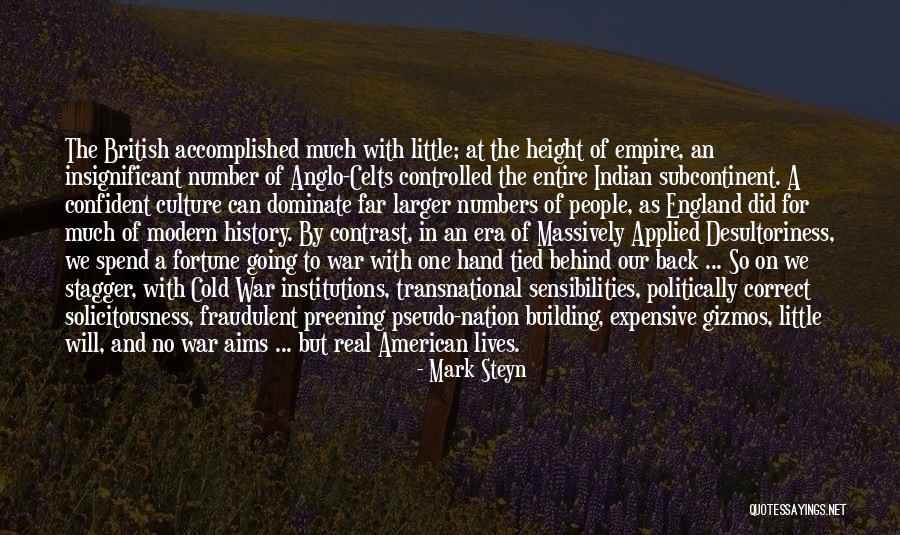
The British accomplished much with little; at the height of empire, an insignificant number of Anglo-Celts controlled the entire Indian subcontinent. A confident culture can dominate far larger numbers of people, as England did for much of modern history. By contrast, in an era of Massively Applied Desultoriness, we spend a fortune going to war with one hand tied behind our back ... So on we stagger, with Cold War institutions, transnational sensibilities, politically correct solicitousness, fraudulent preening pseudo-nation building, expensive gizmos, little will, and no war aims ... but real American lives. — Mark Steyn
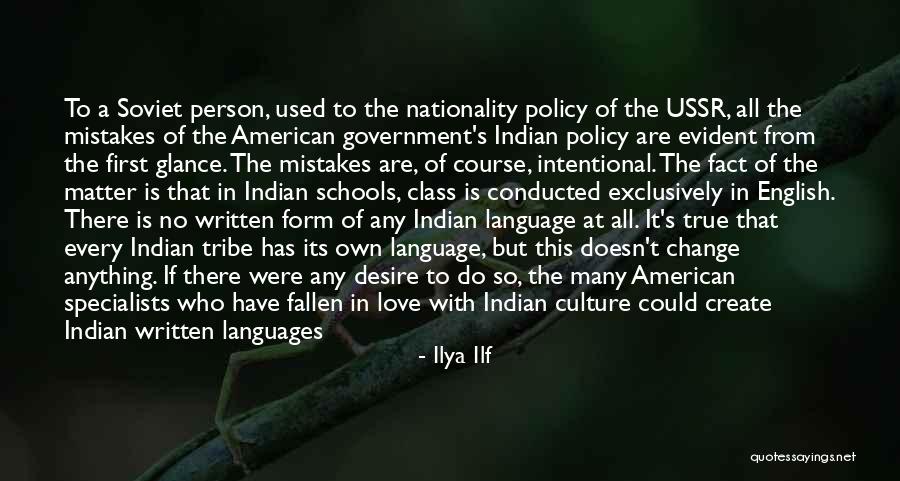
To a Soviet person, used to the nationality policy of the USSR, all the mistakes of the American government's Indian policy are evident from the first glance. The mistakes are, of course, intentional. The fact of the matter is that in Indian schools, class is conducted exclusively in English. There is no written form of any Indian language at all. It's true that every Indian tribe has its own language, but this doesn't change anything. If there were any desire to do so, the many American specialists who have fallen in love with Indian culture could create Indian written languages in a short time. But imperialism remains imperialism. — Ilya Ilf
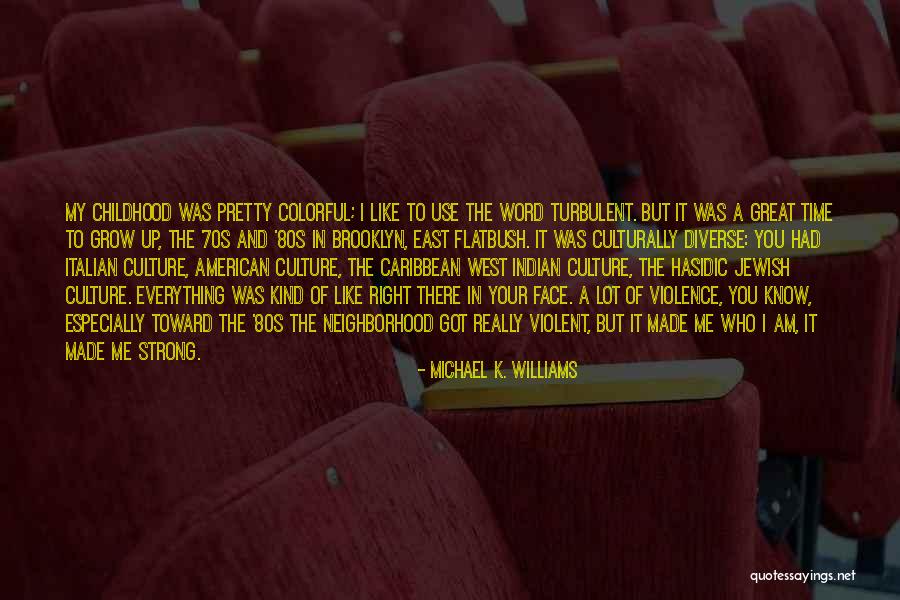
My childhood was pretty colorful; I like to use the word turbulent. But it was a great time to grow up, the '70s and '80s in Brooklyn, East Flatbush. It was culturally diverse: You had Italian culture, American culture, the Caribbean West Indian culture, the Hasidic Jewish culture. Everything was kind of like right there in your face. A lot of violence, you know, especially toward the '80s the neighborhood got really violent, but it made me who I am, it made me strong. — Michael K. Williams
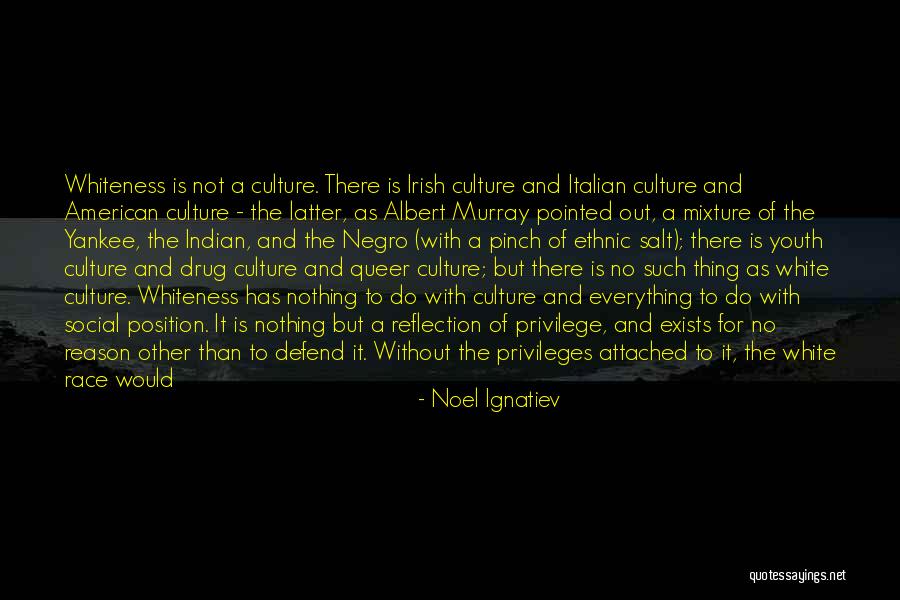
Whiteness is not a culture. There is Irish culture and Italian culture and American culture - the latter, as Albert Murray pointed out, a mixture of the Yankee, the Indian, and the Negro (with a pinch of ethnic salt); there is youth culture and drug culture and queer culture; but there is no such thing as white culture. Whiteness has nothing to do with culture and everything to do with social position. It is nothing but a reflection of privilege, and exists for no reason other than to defend it. Without the privileges attached to it, the white race would not exist, and the white skin would have no more social significance than big feet. — Noel Ignatiev





